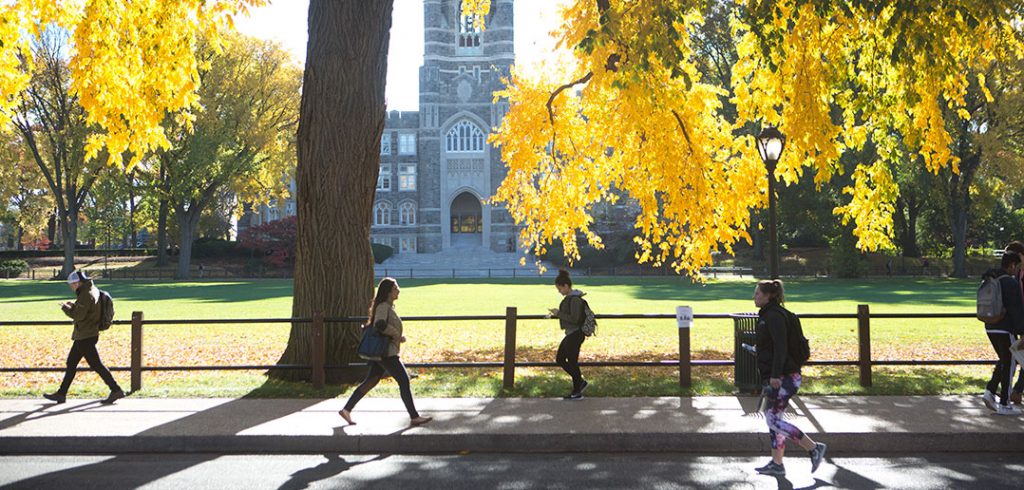This story originally ran as a sidebar to an article about a student who struggled with depression.
More than 63 percent of college students reported experiencing overwhelming anxiety within the last year, according to the American College Health Association’s 2018 National College Health Assessment. And almost 42 percent of surveyed students said they felt so depressed that it was difficult to function.
“Anxiety and depression are the most common presenting problems in our office as well,” said Jeffrey Ng, Psy.D., director of counseling and psychological services (CPS) at Fordham. “Student utilization of on-campus mental health services has been trending upwards for the past 10 years nationally, including at Fordham.”
But there are many different ways to combat anxiety and depression, both on one’s own and with help from loved ones and professionals. Ng offered some suggestions for students struggling with their mental and emotional health and those who care about them:
Practice self-compassion. “Students often have perfectionistic and unrealistic demands and standards for themselves—standards that they likely wouldn’t apply to others,” Ng said. “We encourage our students to try to be as kind to themselves as they would to someone you love or care about.”
Exercise. “Engage in physical activity or exercise,” Ng said. “Physical activity and exercise are incredibly effective for reducing mild to moderate anxiety and depression.”
Practice digital and social media literacy. “Social media constantly exposes and bombards us with airbrushed or curated versions of people’s lives. When we compare ourselves to what we see on social media, we may get the sense that ‘we’re not good enough or doing enough.’ This can contribute to lower self-esteem, which can increase our vulnerability to mental health problems,” he said. “We encourage our students to try to be more intentional, thoughtful, and discerning about how they perceive and relate to social media.”
Don’t forget the essentials. “Attend to basic needs like sleeping, eating, and playing,” Ng said. “Having social relationships and social interactions—those are basic needs as well.”
Remember that there are multiple routes to healing. “It’s important for students to remember that there are many, many different pathways or routes for healing and feeling better. Acceptance from our parents (as in Govindan’s case) is just one of those paths,” Ng said. “Unconditional acceptance is obviously very important for our mental and emotional health, but for some students, they may unfortunately never experience that level of acceptance from their parents. So it’s especially important for them to recognize that there are multiple pathways and possibilities for healing.”
Normalize vulnerability. “One of the most important things we can do to support our students is to normalize vulnerability, imperfection, and struggle as part of the human experience,” Ng said.
Seeking help. One local resource is Fordham’s Counseling and Psychological Services Center, with offices on the Rose Hill, Lincoln Center, and Westchester campuses. To make an appointment, students can call or simply stop by. During non-business hours, students can reach out to public safety or residential life staff for emergencies.
Off-campus, 24/7 resources include the National Suicide Prevention Lifeline, 1-800-273-TALK (8255) and, for those who would rather type than talk, the Crisis Text Line.
“It’s important for our students to recognize that help-seeking is a sign of strength and maturity rather than weakness,” said Ng.

